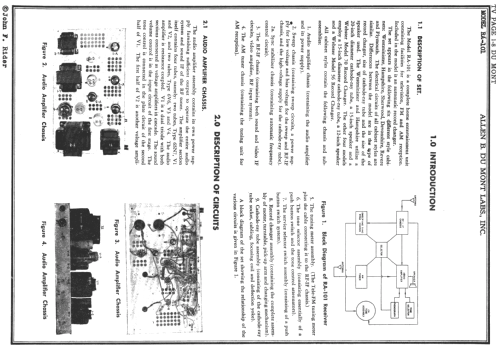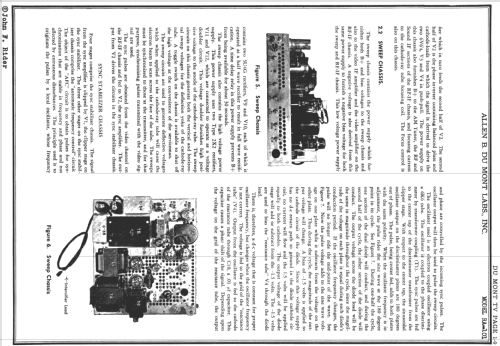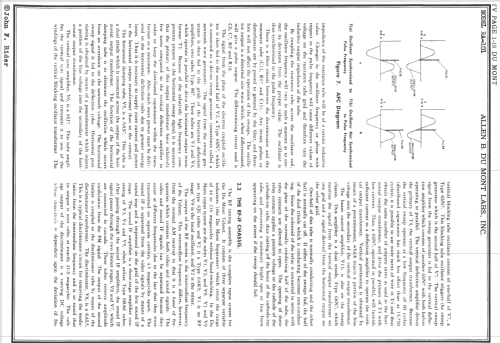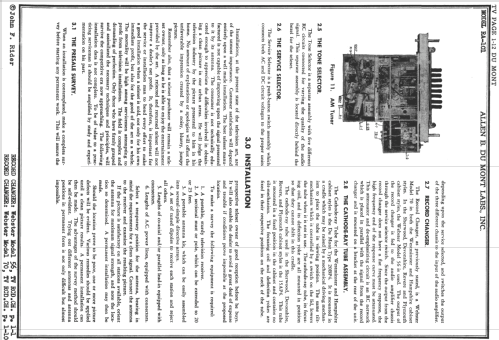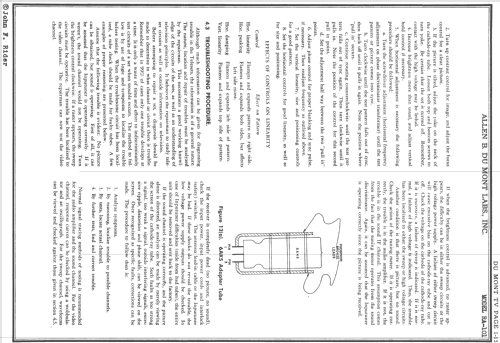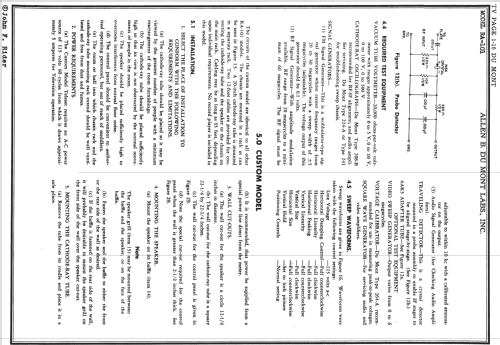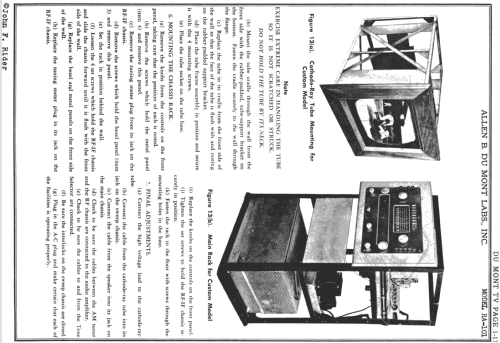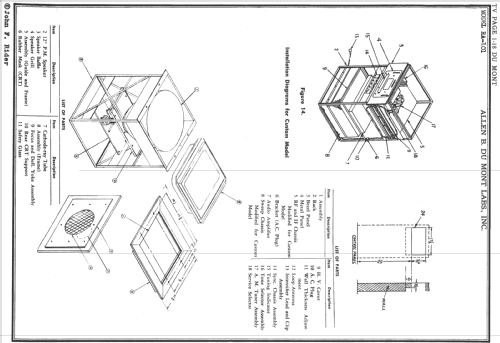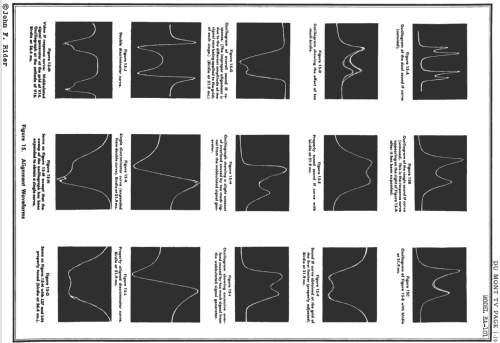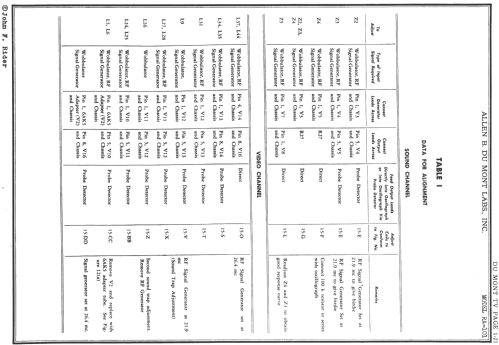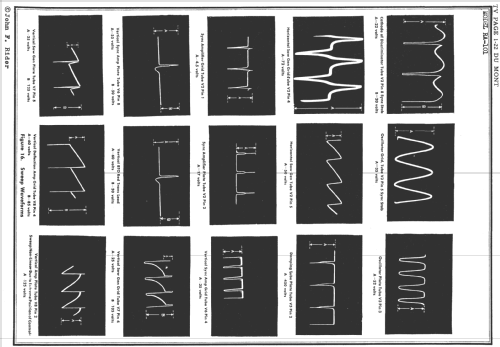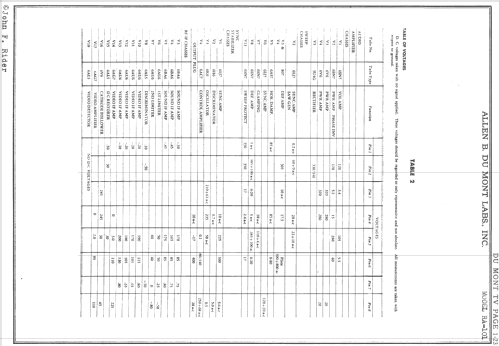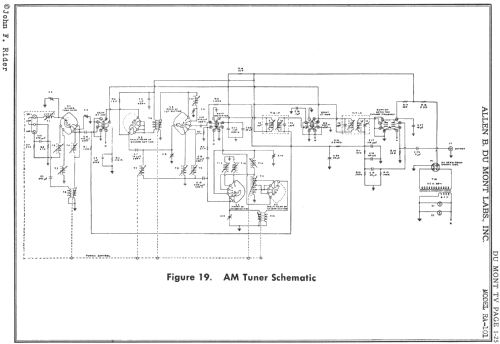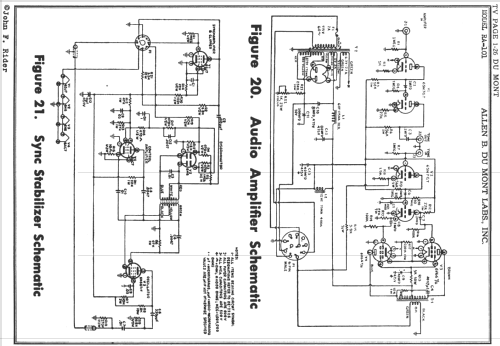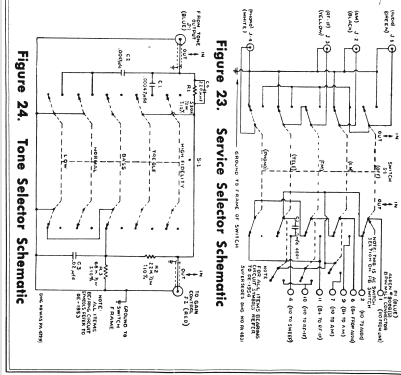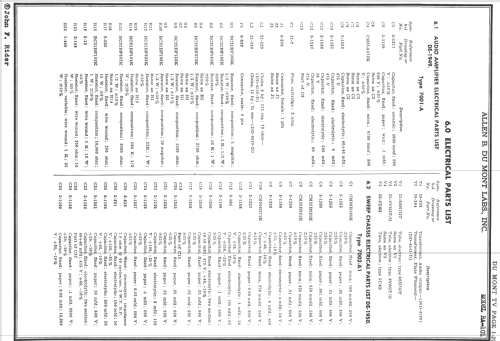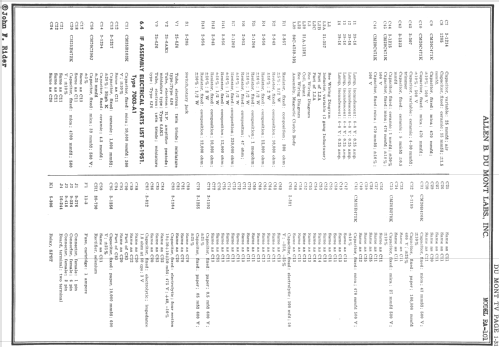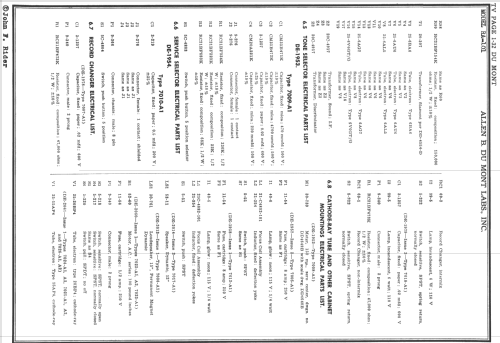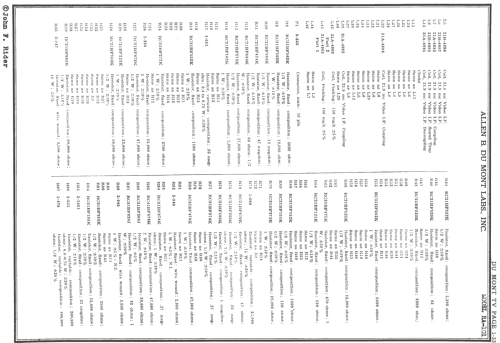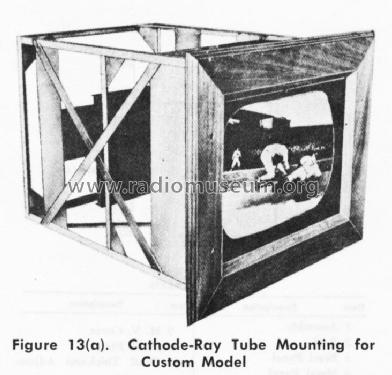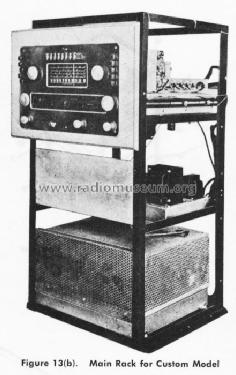Custom RA-101A
DuMont Labs, Allen B., Inc.
- Land
- USA
- Hersteller / Marke
- DuMont Labs, Allen B., Inc.
- Jahr
- 1947
- Kategorie
- Fernseh-Empfänger mit Radio evtl. Komb.m.Ton-/Bildsp.
- Radiomuseum.org ID
- 169506
-
- anderer Name: Dumont Television & Radio
Klicken Sie auf den Schaltplanausschnitt, um diesen kostenlos als Dokument anzufordern.
- Anzahl Röhren
- 44
- Röhren
- 6J6 6AK5 6J6 6BA6 6BA6 6BA6 6AU6 6AU6 6AL5 6AU6 6AU6 6AU6 6AU6 6AG7 6AL5 20BP4 6V6GT 6AG7 6AL5 6SN7GT 6AS7G 6SN7GT 6SN7GT 6SJ7 6SN7GT 5U4G 5U4G 2X2 2X2 6SK7 6SA7 6SK7 6SN7GT 6SN7GT 6SN7GT 807 807 6V6GT 6V6GT 5U4G 6SJ7 6H6 6AC7 6K6GT
- Hauptprinzip
- Super mit HF-Vorstufe; ZF/IF 21900 26400 456 kHz
- Wellenbereiche
- Wellen in den Bemerkungen.
- Spezialitäten
- Plattenwechsler
- Betriebsart / Volt
- Wechselstromspeisung / 117 Volt
- Lautsprecher
- Dynamischer LS, keine Erregerspule (permanentdynamisch) / Ø 12 inch = 30.5 cm
- Belastbarkeit / Leistung
- 8 W (Qualität unbekannt)
- Material
- Diverses Material
- von Radiomuseum.org
- Modell: Custom RA-101A - DuMont Labs, Allen B., Inc.
- Form
- Diverse Formen, unter Bemerkung beschrieben.
- Bemerkung
-
The DuMont RA-101 family of "Telesets" (the term DuMont used for TVs) were perhaps the most expensive and elaborate TVs available in 1947-48.
Combining very large screen sizes with high fidelity audio, AM/FM/SW radio, and a record changer, each set includs five separate chassis with 44 tubes for the AM/SW radio, TV/FM RF-IF, sweep, synchronization, and audio sections. The TV/FM tuner is a motorized version of the Mallory Inductuner (called an "Inputuner" by DuMont) for rapid tuning over a single continuous 44-216 MHz band (which includes TV Channel 1). The Inductuner is tuned by a triple roller inductor. A centering meter is provided as a tuning aid. The AM/SW tuner has 8 pushbuttons for preset stations, and covers five bands: Broadcast 540-1600 kHz, 49m 5.96-6.19 MHz, 31 m 9.1-10 MHz, 25 m 11.45-12.16 MHz, and 19 m 14.94-15.46 MHz.
Versions with the -A suffix use a dangerous 60 Hz 4.4 kV transformer and a dual 2X2 voltage doubler to supply 12 kV DC to the CRT anode. A safer RF-type HV supply replaced this in the -B version. The RF supply uses a 6L6G RF oscillator and provides 17 kV DC to the CRT.
Seven cabinet styles were available. The Hampshire and Westminster have a 20 inch screen with 20BP4 CRT and a unique motor-driven tilt mechanism that positions the CRT vertically within the cabinet when not in use, and tilts horizontal (through an opening provided by open doors on the front) for viewing when in use. The Hampshire and Westminster have 15-inch speaker and a Webster model 70 record changer (78 RPM).
The Devonshire, Plymouth, Revere, and Sherwood cabinets have a 15-inch screen with a fixed 15AP4 CRT. These sets have a 12-inch speaker and a Webster model 56 changer.
The "Custom" was an unusual model in its day -- designed for custom built-in installation. The five chassis in this model are mounted in a rack. The CRT is supported by a metal frame for in-wall mounting, and a wall-mountable speaker grill is used. Instructions were provided regarding wall hole sizes, etc.
Several Westminster, Sherwood, and Custom sets are known to have survived; it is unknown whether any of the other versions can still be found today.
- Literatur/Schema (1)
- Rider TV vol. 1 page 7
- Autor
- Modellseite von Thomas Albrecht angelegt. Siehe bei "Änderungsvorschlag" für weitere Mitarbeit.
- Weitere Modelle
-
Hier finden Sie 308 Modelle, davon 160 mit Bildern und 250 mit Schaltbildern.
Alle gelisteten Radios usw. von DuMont Labs, Allen B., Inc.

